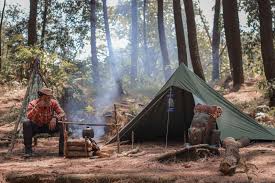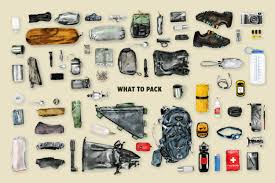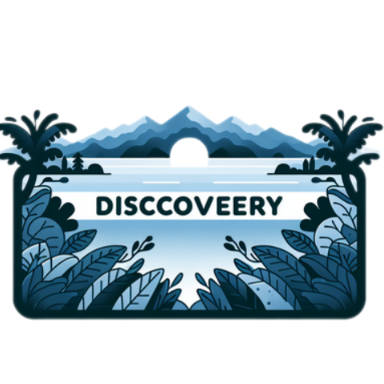Camping solo is an exhilarating adventure that allows for personal reflection, connection with nature, and the thrill of exploration. As 2024 unfolds, solo camping is becoming increasingly popular among those seeking a break from the hustle and bustle of everyday life. However, venturing out alone requires careful planning and preparation to ensure safety and enjoyment. This comprehensive guide provides essential camping tips specifically tailored for solo travelers, helping you make the most of your solo camping experience.
1. Planning Your Solo Camping Trip

Choose the Right Destination
Selecting the right camping destination is crucial for a successful solo trip. Consider factors such as:
- Safety: Opt for a campsite known for its safety and accessibility. National parks, established campgrounds, and designated camping areas are often more secure and better maintained.
- Amenities: Depending on your comfort level, you might prefer campgrounds with amenities like potable water, restrooms, and waste disposal facilities.
- Activities: Look for areas offering activities that interest you, such as hiking, fishing, or wildlife observation.
Check the Weather
Before setting out, review the weather forecast for your destination. Weather conditions can significantly impact your camping experience, so pack accordingly. Prepare for varying weather conditions by bringing waterproof gear, warm clothing, and sun protection.
Obtain Necessary Permits
Many camping areas require permits or reservations, especially during peak seasons. Check the regulations for your chosen campsite and secure any required permits in advance. This will ensure you have a designated spot and avoid potential issues upon arrival.
2. Essential Gear and Packing List

1. Tent and Sleeping Gear
- Tent: Choose a tent that is easy to set up and suitable for the weather conditions. Lightweight and compact tents are ideal for solo campers. Ensure it is well-ventilated and has a rainfly for added protection.
- Sleeping Bag: Select a sleeping bag appropriate for the temperature range of your destination. A sleeping bag with a temperature rating slightly lower than the expected lows is advisable.
- Sleeping Pad: A sleeping pad provides insulation from the cold ground and adds comfort. Inflatable or foam pads are both good options.
2. Cooking and Food Supplies
- Portable Stove: A compact and lightweight stove is essential for cooking meals. Choose one that is easy to operate and reliable.
- Cookware: Pack a small pot, pan, and utensils. Consider a compact cooking set designed for solo travelers.
- Food: Plan and prepare your meals in advance. Opt for non-perishable, easy-to-cook foods. Freeze-dried meals and ready-to-eat options are convenient choices.
- Water: Bring enough water for drinking, cooking, and cleaning. A water filter or purification tablets are useful if you plan to refill from natural sources.
3. Safety and Navigation Gear
- Map and Compass: Even if you plan to use a GPS device, carrying a physical map and compass is crucial for navigation.
- First Aid Kit: A well-stocked first aid kit should include basics like bandages, antiseptics, pain relievers, and any personal medications.
- Emergency Gear: Pack a multi-tool, flashlight or headlamp with extra batteries, and a whistle. An emergency blanket or bivvy bag can also be a lifesaver in unexpected situations.
- Personal Safety: Carry bear spray or other wildlife deterrents if camping in areas with large predators. Be aware of local wildlife and take appropriate precautions.
3. Solo Camping Safety Tips
1. Inform Someone of Your Plans
Before you head out, inform a friend or family member of your camping plans, including your destination, expected return date, and contact information. This ensures someone knows where you are and can raise an alarm if needed.
2. Practice Fire Safety
- Campfire Rules: Follow local regulations regarding campfires. Use established fire rings if available and never leave a fire unattended.
- Extinguishing Fires: Ensure your fire is completely out before leaving your campsite or going to sleep. Douse it with water, stir the ashes, and add more water until the fire is cold to the touch.
3. Stay Aware of Your Surroundings
- Wildlife Precautions: Store food securely and away from your sleeping area to avoid attracting wildlife. Be cautious and respectful of animals, and never approach or feed them.
- Weather Awareness: Monitor weather conditions throughout your trip. Seek shelter and take precautions if severe weather approaches.
4. Follow Leave No Trace Principles
Respect the environment by following Leave No Trace principles:
- Pack Out Trash: Carry out all trash and waste, including food scraps and personal items.
- Minimize Impact: Use established trails and campsites to minimize your impact on natural areas. Avoid trampling vegetation and disturbing wildlife.
- Respect Nature: Leave natural and cultural features as you found them. Do not pick plants or disturb historical artifacts.
4. Enhancing Your Solo Camping Experience

1. Embrace the Solitude
Solo camping provides a unique opportunity for introspection and personal growth. Embrace the solitude and use the time to relax, read, write, or engage in creative pursuits. Disconnect from technology and enjoy the simplicity of nature.
2. Explore and Discover
Take advantage of your solo adventure to explore new trails, discover hidden spots, and enjoy activities at your own pace. Solo camping allows you to create your own itinerary and immerse yourself in the natural beauty of your surroundings.
3. Capture Memories
Bring a camera or journal to document your experiences. Capturing photos and writing about your adventures can enhance your appreciation of the trip and provide lasting memories.
5. Conclusion
Solo camping in 2024 offers a unique chance to connect with nature, enjoy personal time, and embark on a memorable adventure. By carefully planning your trip, packing essential gear, following safety protocols, and respecting the environment, you can ensure a rewarding and enjoyable solo camping experience. Whether you’re exploring a serene forest, hiking mountain trails, or relaxing by a tranquil lake, these tips will help you make the most of your solo camping journey. Embrace the freedom of solo travel and let the beauty of nature be your guide




